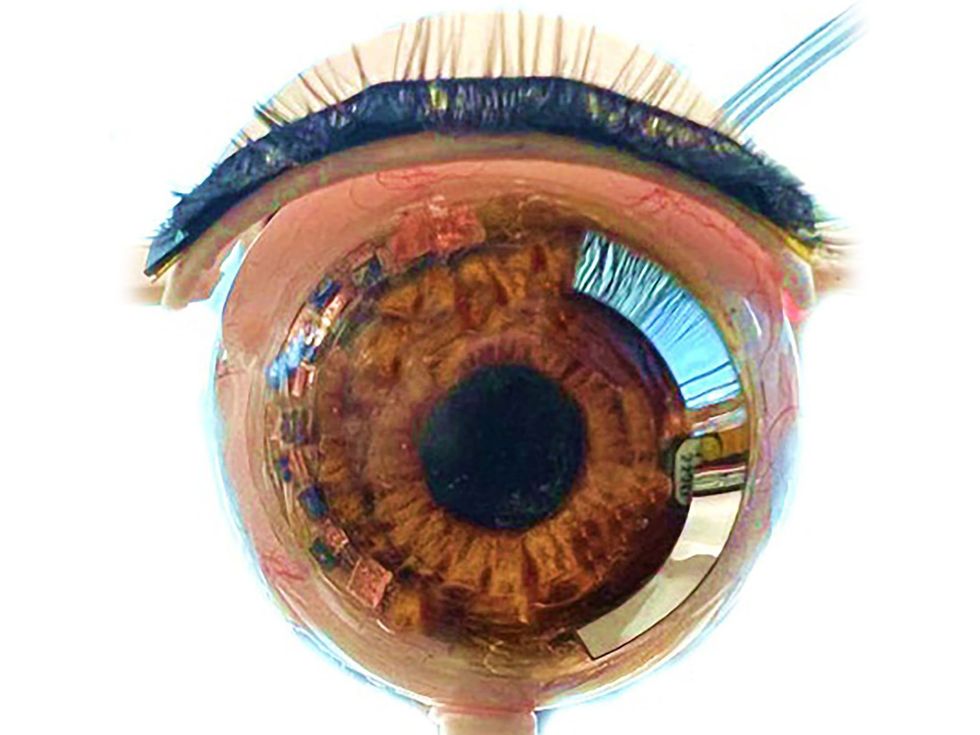Tomorrow, nine players will face off at the final table of the World Series of Poker in Las Vegas. The winner is expected to walk away with about $9 million. Fans are marveling at how many young guns - many in the their 20s - made the cut. Of course it's not that amazing, really. The new generation of players are sharpening their chops online. But, behind the scenes, poker scientists are trying to make software smart enough to beat them.
The battle between humans and machines isn't new, of course. Part Oedipal fantasy, part Frankenstein myth, it’s the stuff of nightmares and cult flicks. From Yul Brenner’s killer cowboy in Westworld through HAL’s laser-pointer stare in 2001, we are fascinated by our powers of creation and the possibility that the bots we make may defeat us.
In recent years, nothing has quite captured this fantasy like the clash of Garry Kasparov and Deep Blue. The 1997 match between the reigning world champion and IBM’s Supercomputer was hyped like a Geeks Gone Wild halftime show. Newsweek called it “the brain’s last stand.” The brain lost. But humans including the late author George Plimpton rushed to its defense. “This doesn't mean the machine is going to walk out of the hotel and start doing extraordinary things,” he said, “Over the years, it may be that the machine is likely to be able to do other things. I'm not sure what, at the moment.”
The answer, already, was poker. Six years before IBM’s victory, a group of artificial intelligence researchers at the University of Alberta in Canada began creating software to beat people at Texas Hold ‘Em. At the time, playing poker online for money was still a distant dream. But the sheer challenge of mastering the game tantalized computer scientists like UA computer science professor Dr. Jonathan Schaeffer.
“In poker, you have to make decisions based on imperfect information,” Schaeffer told me, “You don’t know the other players’ cards, and that’s what real life is about. You’re dealing with people on daily basis and you don’t have complete information. The best poker game I ever witnessed was the Gulf War.
Dr. Schaeffer, who leads a team of developers working under the rubric of the Games Group, already has one severed man head on the machine’s stick. It happened in 1994, when the Games Group’s checkers bot, named Chinook, became the first computer program ever to beat a world champion (yes, before even Deep Blue). Then they set their sights on poker.
Since poker is a game of both skill and luck, the Games Group set about mastering the part they could control: the skills. Calculating poker algorithms such as pot odds and winning hands is straight-forward enough, Schaeffer says. He shrugs off more ephemeral technique, like bluffing. “That’s very easy for computers,” he said, “You can mathematically show which class of hands you should bluff.”
The biggest challenge is what he calls opponent modeling: detecting betting patterns in other players that can help the computer make better decisions. “Most of the time, in poker, you don’t get the information you need from other players,” Schaeffer said, “If they did perfect bluff and you folded, you don’t know they bluffed.”
Despite the difficulties, however, UA’s poker bots reached a turning point in 2003, when it stood up against a seasoned online pro. They are now being used commercially in poker training software called Poker Academy. No wonder this year's World Series of Poker pros seem like machines.
David Kushner is the author of many books, including Masters of Doom, Jonny Magic & the Card Shark Kids, Levittown, The Bones of Marianna, and Alligator Candy. A contributing editor of Rolling Stone, he has written for publications including The New Yorker, Vanity Fair, Wired, and The New York Times Magazine.



